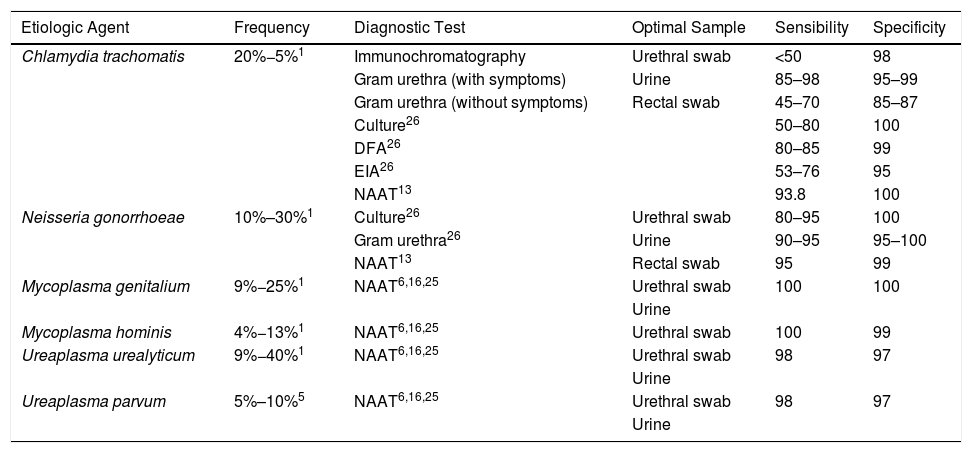Male urethritis is an inflammation of the urethra and the periurethral glands; it is widely classified as gonococcal or non-gonococcal. The most frequent microorganisms responsible are Chlamydia trachomatis, Neisseria gonorrhoeae, Mycoplasma genitalium, Mycoplasma hominis, Ureaplasma urealyticum, and Ureaplasma parvum.
In the last three decades, the diagnosis of sexually transmitted diseases depended almost exclusively on traditional methods, such as culture, enzyme immunoassay, fluorescent antibody staining, and hybridization, until the appearance of molecular techniques.
Clinical syndromes such as urethritis are rarely specific for a single microorganism, so screening strategies should allow multiple agents to be considered. Multiplex PCR is the fastest and most sensitive technique for the diagnosis of gonococcal and non-gonococcal urethritis.
Male urethritis without treatment is one of the main health problems related to reproductive and sexual function, constituting one of the main causes of infertility. The objective of this mini-review was to analyze the epidemiology, causes, diagnosis, and complications of male urethritis.
La uretritis masculina es una inflamación de la uretra y las glándulas periuretrales; a grandes rasgos, se clasifica como gonocócica o no gonocócica. Los microorganismos responsables más frecuentes son Chlamydia trachomatis, Neisseria gonorrhoeae, Mycoplasma genitalium, Mycoplasma hominis, Ureaplasma urealyticum y Ureaplasma parvum.
En las últimos tres décadas, el diagnóstico de las enfermedades de transmisión sexual dependía casi exclusivamente de métodos tradicionales como el cultivo, el inmunoensayo enzimático, la tinción de anticuerpos fluorescentes y la hibridación, hasta la reciente aparición de técnicas moleculares.
Los síndromes clínicos como la uretritis rara vez son específicos de un solo microorganismo, por lo que las estrategias de selección deben permitir que se consideren múltiples agentes. La PCR Múltiple es la técnica más rápida y sensible para el diagnóstico de la uretritis gonocócica y no gonocócica.
La uretritis masculina no tratada es uno de los principales problemas de salud relacionados con la función reproductiva y sexual, constituyendo una de las principales causas de infertilidad. El objetivo de esta pequeña revisión es analizar la epidemiología, las causas, el diagnóstico y las complicaciones de la uretritis masculina.







